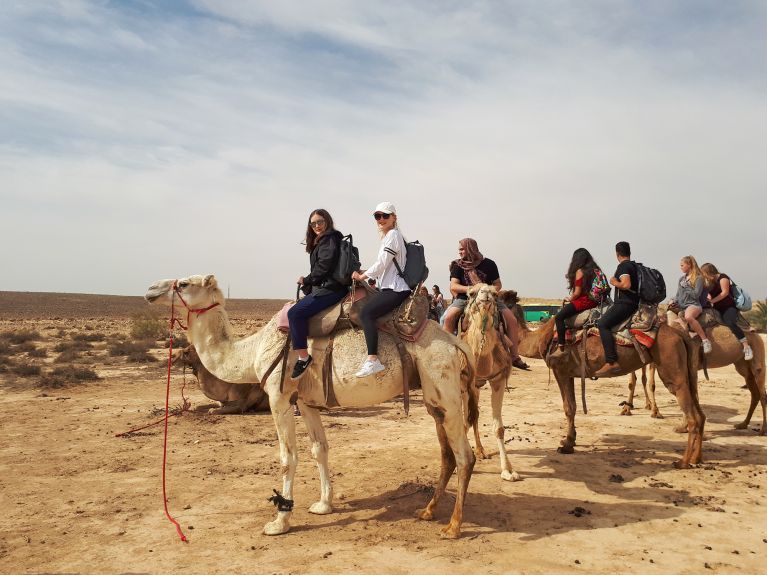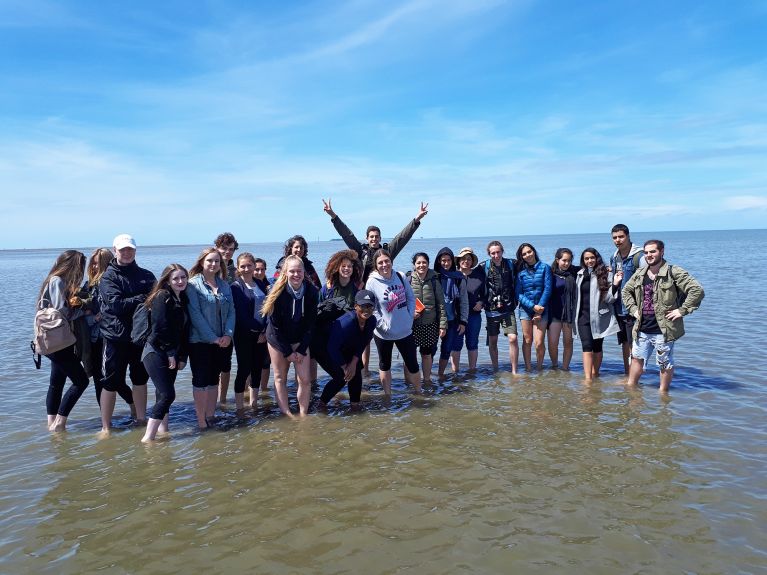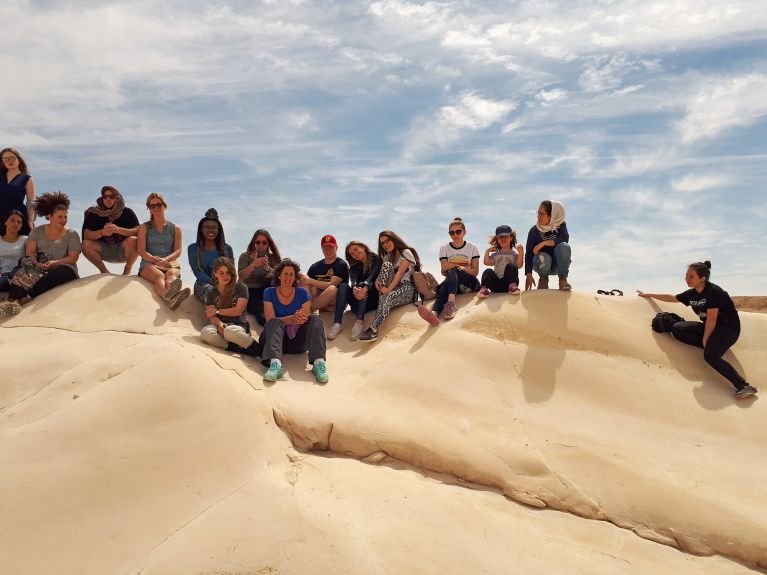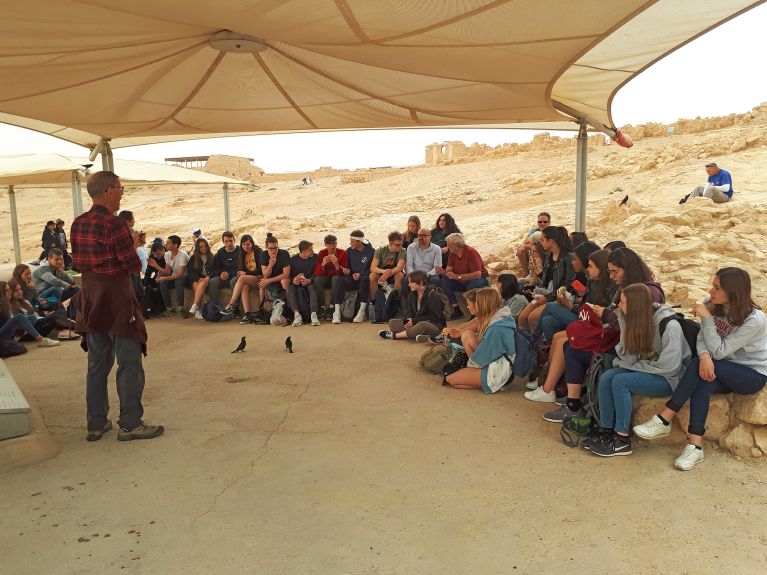Change of perspective included
This German-Israeli school exchange tackles controversial topics such as migration and homosexuality – but is primarily about new encounters.

When Germans are offered private accommodation on a school exchange, they generally think of a terraced house in Avignon or a city flat in Dublin – but not of a military base near Be'er Sheva in Israel. There, 40 kilometres from Gaza in the Palestinian Territories, 17-year-old Laurena from Hamburg spent a few days in March living with her host family. “There were security checks and visitors had to be registered. Otherwise however, it was normal everyday life. I had a nice family that gave me a very warm welcome,” says Laurena, who attends Margaretha-Rothe-Gymnasium in Hamburg.
She has long been interested in Israel, Laurena says, and reads a lot about its culture and political situation. Through the German-Israeli exchange programme between her school and the Neta Erez Waldorf School in Be'er Sheva she had an opportunity to get an idea for herself. “We visited Jerusalem, spent a night all together in a kibbutz and went on a trip to the Dead Sea. I now have the feeling I understand the country and the people better,” notes Laurena.
Israel – image and reality
Her classmate Leon had a similar experience. His image of Israel was primarily shaped by the reports in German media. He viewed the people in Israel as very religious and conservative. That view was in part confirmed, but other things surprised Leon. “There were big regional differences. In Tel Aviv we saw rainbow flags in cafés and met very liberal people; in other regions more conservative attitudes prevailed, but that is often the case here in Germany, too,” says Leon. What he enjoyed most was being in direct contact with people his age. His host brother took him along to meet friends with him, and they spent a relaxed evening together. It was surprising, Leon notes – “but not really when you think about it” – that they were essentially all very similar. Young people with similar problems and interests.
Award-winning exchange programme
Leon is not the only one to see things this way. “I hear that every year after our Israel trip: The differences between us are not so big. We listen to the same music, have the same interests and like to spend time with our friends,” comments Axel Schlüter. The teacher has been organising the exchange programme on the German side since 2015. Every spring, 15 to 20 young people from his school go to Israel. The young Israelis then come to Germany in the summer.
During the exchange, the pupils jointly address a current topic that is hotly debated in both countries: migration, the Israeli-German past or, this year, homosexuality. In 2016 the programme even received the student exchange award of the non-profit foundation Deutsche Stiftung Völkerverständigung for its contribution to promoting understanding between young people in Germany and Israel.
Nevertheless, to begin with the German parents were worried about the security situation, Schlüter notes. In the meantime most are very open as far as the programme is concerned, he adds. “The pupils always take it in their stride anyway and find it exciting to visit a country that isn’t always at the top of the bucket list for many young Germans.”
A focus on encounters
It is the joint project that makes the exchange between the two schools so special. In 2019 the young Germans and Israelis are creating a joint podcast on the topic “Understanding and accepting sexual diversity”. To this end they are surveying other students and interviewing experts. Yehonatan Dvir, director of the Neta Erez Waldorf School and co-organiser of the exchange, likewise considers this cooperation very valuable. Yet almost even more important than that, he says, is ordinary encounters: “the moments between the guided tour of the Elbphilharmonie and recording the podcast – travelling on the bus together, eating supper together in the kibbutz, simply being a teenager.”
Discussing the past
He hopes the exchange will open up to his pupils a new perspective on the world and their own country: “Israeli pupils join the military for several years right after graduating. I think it is important for them to get to know another culture before that and to see the world with different eyes,” says the director. Among themselves, the young people talk openly about all kinds of topics, including the two countries’ pasts. Yet they have a certain distance to it, Dvir says, they see that there is more to the other country than its history and there is nonetheless a great deal linking them. “It is very moving every year: In the first few days of the programme all the German pupils always sit on the left at mealtimes and all Israeli pupils on the right. On the last day they are all mixed up together. And some even shed tears when they say goodbye.”
You would like to receive regular information about Germany? Subscribe here:





